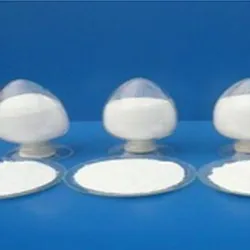
Phosphoric Acid - Properties, Uses, and Safe Handling
Understanding Phosphoric Acid A Strong and Versatile Compound
Phosphoric acid, a colorless and odorless liquid, is one of the most widely used inorganic acids in various industries. With the chemical formula H₃PO₄, it is considered a moderately strong acid, possessing the ability to act as both an acid and a base, depending on the chemical environment. In this article, we will explore the properties, applications, and significance of phosphoric acid.
Chemical Characteristics
Phosphoric acid is characterized by its three hydrogen atoms, which can dissociate in aqueous solution, making it a triprotic acid. This means it can donate three protons (H⁺ ions), leading to three distinct forms of the phosphate ion (H₂PO₄⁻, HPO₄²⁻, and PO₄³⁻). Although it is not as strong as sulfuric or hydrochloric acid, phosphoric acid is still a powerful acid in various chemical reactions due to its ability to interact with other molecules, making it significant in both laboratory and industrial processes.
Industrial Applications
Phosphoric acid has a diverse range of applications across multiple industries. One of its most significant uses is in the production of fertilizers, particularly phosphorus-based fertilizers that enhance soil fertility. It is a vital component in the synthesis of ammonium phosphate, which is essential for agricultural productivity.
phosphoric acid strong

In the food industry, phosphoric acid is used as an acidity regulator and flavoring agent in soft drinks and processed foods. Its distinct acidic flavor can enhance the taste of beverages, making it a popular ingredient in cola drinks. Additionally, it serves as a food preservative, preventing spoilage and prolonging shelf life.
Phosphoric acid also plays a critical role in the manufacture of detergents and cleaning agents. Its ability to effectively remove rust and scale makes it a popular choice in industrial cleaning applications. Furthermore, it is employed in the production of ceramics and glass, where it acts as a flux, aiding in the melting of raw materials and enhancing the final product’s quality.
Environmental and Safety Considerations
While phosphoric acid is widely used, it is essential to handle it with care. It can be corrosive and may cause burns upon contact with skin or tissues, highlighting the importance of proper safety measures when using it in various applications. Additionally, concerns have been raised regarding the environmental impact of phosphorus runoff from agricultural practices, as excessive phosphorus in water bodies can lead to eutrophication, causing harmful algal blooms.
Conclusion
Phosphoric acid is undeniably a strong and versatile compound with a wide array of applications. Its role in agriculture, food production, and cleaning solutions underscores its importance in daily life and industrial processes. As we continue to utilize this compound, it is crucial to address environmental and safety issues associated with its use. Understanding phosphoric acid not only highlights its significance but also emphasizes the need for responsible management in its applications to safeguard human health and the environment.
-
Aluminum Hydroxide: Quality Gels & Dried Gel AntacidNewsAug.31,2025
-
Buy High-Quality Trichloroisocyanuric Acid for Sale | TCCA 90% SupplierNewsAug.30,2025
-
Pure Sodium Dichloroisocyanurate Dihydrate | Powerful DisinfectantNewsAug.29,2025
-
Industrial Chemicals: Quality & Purity for Every IndustryNewsAug.28,2025
-
Nitrile Rubber Honoring Strict Production StandardsNewsAug.22,2025
-
Aspartame Ingredients Honoring Food Safety ValuesNewsAug.22,2025
-
Fertilizer for Balanced Plant NutritionNewsAug.22,2025
Hebei Tenger Chemical Technology Co., Ltd. focuses on the chemical industry and is committed to the export service of chemical raw materials.
-

view more DiethanolisopropanolamineIn the ever-growing field of chemical solutions, diethanolisopropanolamine (DEIPA) stands out as a versatile and important compound. Due to its unique chemical structure and properties, DEIPA is of interest to various industries including construction, personal care, and agriculture. -

view more TriisopropanolamineTriisopropanolamine (TIPA) alkanol amine substance, is a kind of alcohol amine compound with amino and alcohol hydroxyl, and because of its molecules contains both amino and hydroxyl. -

view more Tetramethyl Thiuram DisulfideTetramethyl thiuram disulfide, also known as TMTD, is a white to light-yellow powder with a distinct sulfur-like odor. It is soluble in organic solvents such as benzene, acetone, and ethyl acetate, making it highly versatile for use in different formulations. TMTD is known for its excellent vulcanization acceleration properties, which makes it a key ingredient in the production of rubber products. Additionally, it acts as an effective fungicide and bactericide, making it valuable in agricultural applications. Its high purity and stability ensure consistent performance, making it a preferred choice for manufacturers across various industries.





